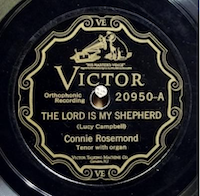A notable fact that year was that exit polls showed about 80 percent of White Evangelical Christians supported Trump despite his unfamiliarity with the Bible, his divorces, his vulgar rhetoric, his association with porn stars, and his attacks on nonwhite people around the world.
That percentage held steady at 81 percent in 2020, with substantially more fervor. In 2020, Trump’s job approval rating among White Evangelical Protestants was higher than other religious groupings, including non-religious.
Some may wonder how Evangelical Christians can support such a man, but dear friends, it is worse than that. Many of these people have abandoned Christ and Christianity and taken up Trump and Trumpism.
Many Evangelical Christians have abandoned Christ and Christianity and taken up Trump and Trumpism.
To illustrate this cultural rot, I will refer to two prominent religious anti-Trumpers — Russell Moore, a former top official of the Southern Baptist Convention, and Tim Alberta, a journalist and best-selling author who is steeped in the evangelical tradition.
Moore, currently editor-in-chief of Christianity Today, reports in media interviews:
“Multiple pastors tell me, essentially, the same story about quoting the Sermon on the Mount, parenthetically, in their preaching — ’turn the other cheek’ — [and] have someone come up after to say, ‘Where did you get those liberal talking points? When the pastor would say, ‘I’m literally quoting Jesus Christ,’ The response would be, ‘Yes, but that doesn’t work anymore. That’s weak,”
Russell Moore adds that Christianity is in a crisis due to the current state of right-wing politics.
He has found himself at odds with other evangelical leaders because of his frequent criticism of former President Donald Trump. He resigned from his position with the SBC in 2021 following friction over his views on Trump and a sex abuse scandal among Southern Baptist clergy.
“Evangelical” became synonymous with “conservative Christian,” and eventually with “white conservative Republican.”
In 2019, Tim Alberta started warning about the division of Christians into two camps—those who view issues through the eyes of Jesus versus those who process everything through a partisan filter.
According to Alberta, Trump did not create the problem in the evangelical Church. It had started before him. With the rise of Jerry Falwell’s Moral Majority, “Evangelical” soon became synonymous with “conservative Christian,” and eventually with “white conservative Republican.”
In his new book, The Kingdom, The Power, and the Glory, Alberta concludes that:
“More than any figure in American history [Trump] transformed evangelical from spiritual signifier into a political punch line, exposing the selective morality and ethical inconsistency and rank hypocrisy that for so long lurked in the subconscious of the evangelical movement. To be fair, this slow-motion reputational collapse predated Trump; he did not author cultural insecurities of the Church. But he did identify them and prey upon them in ways that have accelerated the unraveling of institutional Christianity in the United States.”
A poll this past August by CBS News and YouGov reflects the country in crisis. Only 44 percent of Republican primary voters trust what religious leaders tell them to be the truth. Among the Trump supporters in the poll, that number was 42 percent. Yet, 71 percent of those same respondents said they trusted Trump to tell them the truth.
Remember, this is belief in a man who made 30,573 false or misleading claims in four years as president, as tallied by the Washington Post.
The White Evangelicals are not unique among Trump’s cult, but they are leading the parade.
RELATED
• • •• • •
Wornie Reed is Professor Emeritus of Sociology and Africana Studies and Director of the Race and Social Policy Research Center at Virginia Tech University. Previously he developed and directed the Urban Child Research Center in the Maxine Goodman Levin College of Urban Affairs at Cleveland State University (1991-2001), where he was also Professor of Sociology and Urban Studies (1991-2004). He was Adjunct Professor at the Case Western Reserve University School of Medicine (2003-4). Professor Reed served a three-year term (1990-92) as President of the National Congress of Black Faculty, and he is past president of the National Association of Black Sociologists (2000-01).
This column first appeared online at What the Data Say and is shared here by permission.















